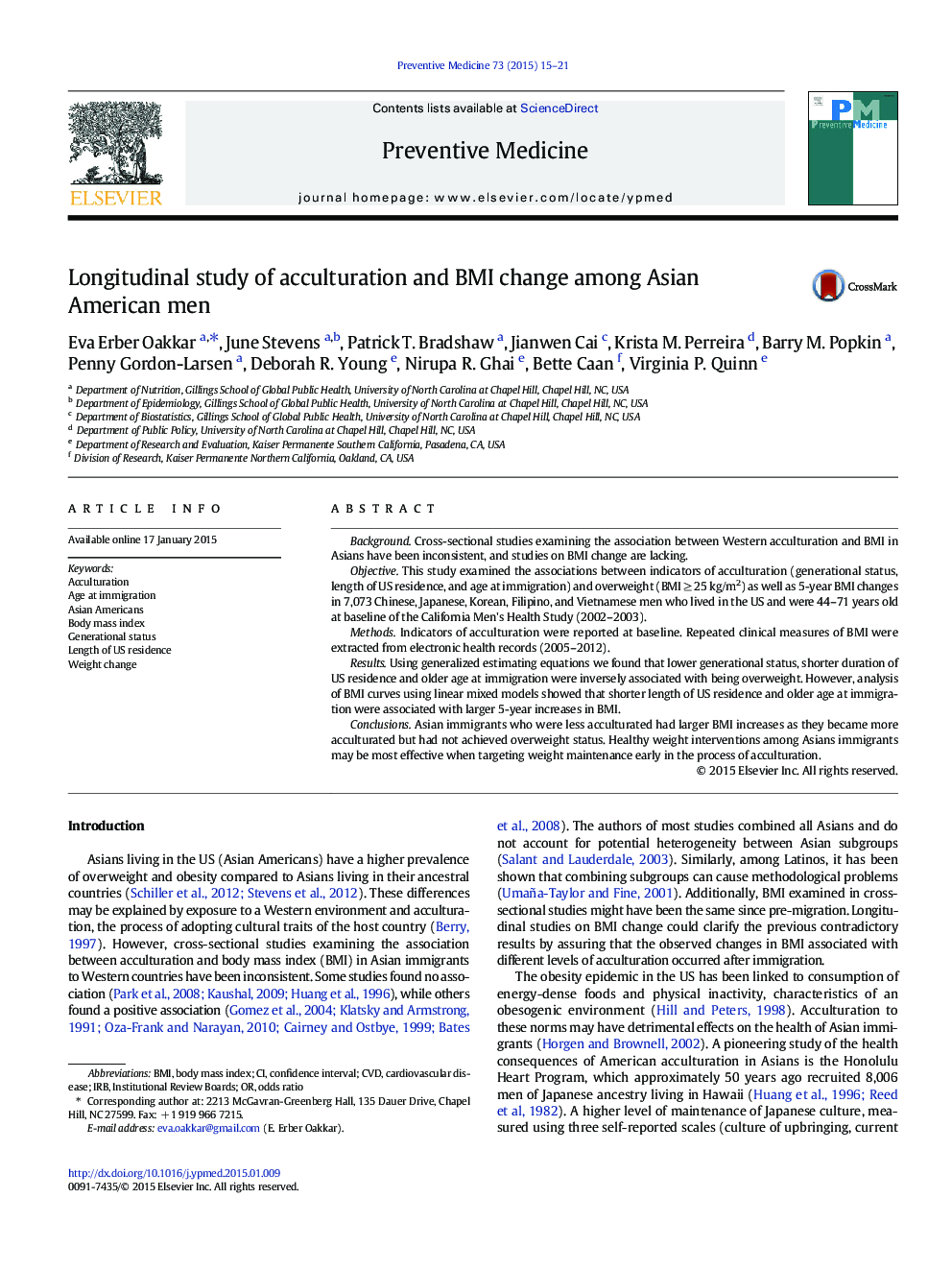| Article ID | Journal | Published Year | Pages | File Type |
|---|---|---|---|---|
| 6046555 | Preventive Medicine | 2015 | 7 Pages |
â¢We examined the acculturation-overweight association in Asian Americans.â¢We examined the acculturation-BMI change association in Asian Americans.â¢Less acculturated Asians had lower odds of overweight.â¢Less acculturated Asians had larger BMI increases over time.â¢Interventions preventing weight gain in recent Asian immigrants are needed.
BackgroundCross-sectional studies examining the association between Western acculturation and BMI in Asians have been inconsistent, and studies on BMI change are lacking.ObjectiveThis study examined the associations between indicators of acculturation (generational status, length of US residence, and age at immigration) and overweight (BMI â¥Â 25 kg/m2) as well as 5-year BMI changes in 7,073 Chinese, Japanese, Korean, Filipino, and Vietnamese men who lived in the US and were 44-71 years old at baseline of the California Men's Health Study (2002-2003).MethodsIndicators of acculturation were reported at baseline. Repeated clinical measures of BMI were extracted from electronic health records (2005-2012).ResultsUsing generalized estimating equations we found that lower generational status, shorter duration of US residence and older age at immigration were inversely associated with being overweight. However, analysis of BMI curves using linear mixed models showed that shorter length of US residence and older age at immigration were associated with larger 5-year increases in BMI.ConclusionsAsian immigrants who were less acculturated had larger BMI increases as they became more acculturated but had not achieved overweight status. Healthy weight interventions among Asians immigrants may be most effective when targeting weight maintenance early in the process of acculturation.
